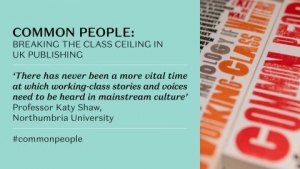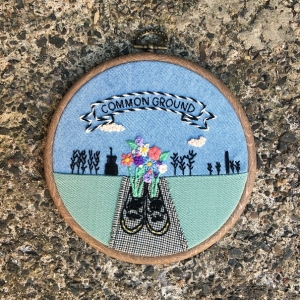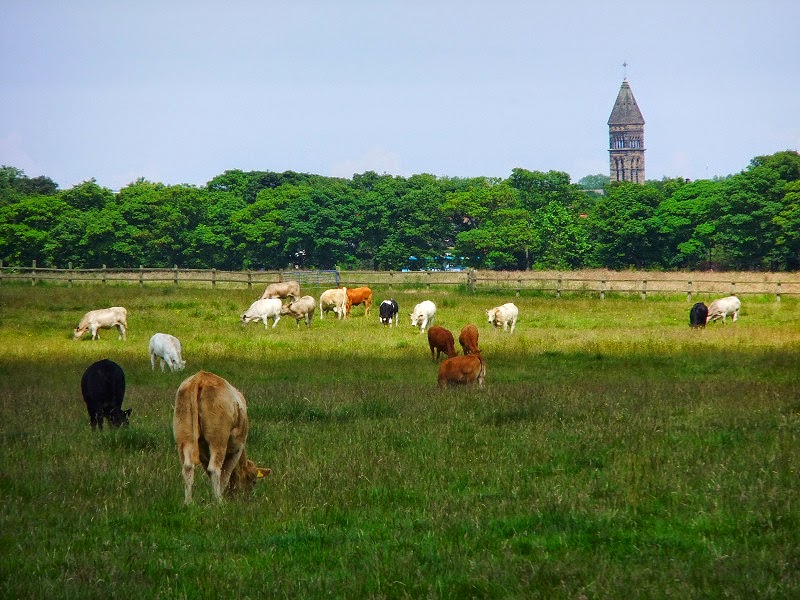
Narrow Streets: publishing and the class conundrum
Lyndsey Ayre writes about the class problem in publishing
On the inside cover of the 2019 edition of Tove Ditlevsen’s Childhood – the first of her autobiographical Copenhagen trilogy – there is a short paragraph describing the writer’s class and upbringing. It goes something like this: Ditlevsen, one of Denmark’s most important writers, grew up in the early 20th century, in a working-class neighbourhood called Vesterbro. From an early age, she knew she was different, that she was going to be a writer with ‘long, mysterious words crawling across her soul.’ ‘Inevitably,’ the bio continues, Ditlevsen came to the realisation that to pursue this dream she would have to ‘leave the narrow streets of her childhood behind.’ The message is clear: her working-class background was a problem that had to be navigated and escaped before she could blossom into the successful author and poet she was destined to become.
The articles I could find about Ditlevsen online told a similar story. The Guardian in 2019 described her as a ‘dreamy working-class misfit,’ while The Spectator applauded her journey from ‘slum girl to literary prodigy.’ Hers is a rags-to-intellectual-riches story: a young woman with a burning vocation for art who escapes her narrow street and winds up having dinner with Evelyn Waugh.
Yet I wonder how helpful it is for Ditlevsen to be described this way. Why was it inevitable that she would have to leave Vesterbro? Is it always necessary, or helpful, to point out a writer’s class on the blurb of a book? And what about the framing of her class? What if she had stayed living on her narrow street at the same time as being a writer, and it hadn’t been something to be escaped: a rein on her creativity, a hurdle to be jumped over in pursuit of finer interests? Is it really still considered an extraordinary feat for an author to be from a working-class background?
Working-class writing
These are complicated questions whose answers I’ve not yet been able to decide upon. My feelings are confused and constantly shifting, not least because I, myself, won an award for working-class writers – the Sid Chaplin award – in 2019. I am endlessly grateful to the panel of judges who read the first chapter of my novel and saw enough in it to award me the prize. I’m thankful for the support I’ve received since, which secured me an agent. I feel an immense amount of pride in my background and was honoured to have won an award in Sid’s name. And I think schemes and awards that help working-class writers and artists to navigate worlds that are largely set up in ways that make them inaccessible are important for communicating that the industry recognises that it needs to effect change.
Still, I’ve never really been sure that I fit into the mould of what a working-class writer is expected to be. I feel that this is, in part, because I’ve been repeatedly told what my class experience should be, via a complex web of texts and codes fed into popular culture by a publishing industry that often seems to have little grasp as to what real life is like for so many of us. I’ve always felt a strong affinity with the kitchen-sink writers of the 1950s and 60s, for their insistence on the everyday nature of class experience. Their characters are smart, witty and funny. They go to work and are frequently frustrated by dead-end jobs, finding release in the lager-drenched pubs and clubs of the weekend. Many of the attitudes of these books have aged badly, but I still think that their portraits of the drama that plays out against the day-to-day business of people’s lives sparkle.
When I think about my class identity, I often think, too, of Alan Bennett’s description of his own childhood. Now in his 80s and referred to – pejoratively, you can’t help but feel – by some as a National Treasure, he is hardly considered to be at the vanguard of class writing. Yet his descriptions of his parents – shy, uncertain, fearing being thought of as ‘common’ – are still some of the most nuanced and relatable class portraits I’ve read.
I didn’t grow up in deprivation: my childhood was mostly quiet and composed of Sunday dinners at McDonald’s, caravan parks, Babysitter’s Club books and bottles of Panda Pop. Class, for me, wasn’t something that I railed against or felt the need to escape from – or that I remember seeing anyone else railing against. I knew that our cousins lived in a more expensive house than we did, that they went to a better school, and had different accents, yet I only knew this vaguely, as a sort of abstract concept. While the inequality gap yawns ever larger for so many people, I cannot claim to have experienced anything like the worst of it myself: only to have worked and earned my own wage since I was 16; to have gone to a struggling school and received middling exam results; to have attended a polytechnic; to have avoided speaking up at readings and conferences, conscious of my regional accent; to have no savings and no financial safety net to fall back on.
As I've grown older, bad experiences of the world of writing and the arts have stacked up: a snide comment made on my glottal stop; a major publisher who wasn’t sure where Newcastle was; a prestigious journalism award I was once shortlisted for, where senior journalists at a major, left-leaning publication expressed surprise that I was there ‘from the North.’ These are comparatively small hardships and slights compared to those faced by many people, and yet, at times, they have been enough to make me feel like giving up. I have written on work lunchbreaks and stayed up until 2am writing, drinking so much coffee on shift the next morning that my hands shake and my vision blurs. I’ve spent my 20s writing articles for various publications – few of which have ever been in a position to pay – in the hope that one day they would lead to something more substantial. I have taken on more hours in my day job and felt the time I have for writing squeezed ever smaller. I have wondered why I continue to put myself in positions and situations where I feel, at best, fundamentally misunderstood and at worst, unwelcome.
I've continued partly out of a real passion and love for reading and writing, and partly out of sheer bloody-mindedness and the idea that voices like mine should not be forced out because they don’t easily fit into a publishing industry’s idea of what a working-class voice should be. It has been hard. For many working-class people – people who have more responsibilities than I do, people such as young carers or young, single parents – it is even harder.
So – what can be done about it?
Class diversity in publishing can’t be fixed by simply allowing a handful of working-class voices through, no matter how explicitly and loudly you tell people that that’s what you’re doing. After all, diversity isn’t really diversity until it becomes normality: before that you are simply in the process of attempting to effect change. There are no quick fixes to the problem, which has its roots in wider, societal issues. But perhaps a starting point is to reframe how we think about writing and about culture more broadly.
What is needed is not so much a set of solutions to the ‘problem’ of greater class diversity in the publishing industry, so much as a shift in understanding as to what, and who, reading is for. We might best address the issue by going back to the very basics of how the industry is run, applying socialist principles to the publishing industry as we might apply them to any other resource that everyone should have access to. The narratives that an era produces speak volumes about the time in which they were conceived. Books, plays, films and song have the power to summarise complex societal conversations around race, gender and class struggles. They have the power, also, to speak to people about their everyday lives and to reflect and legitimise their experiences, lending them the permanence of art. Narratives are not superfluous: they are what societies are built on.
The class problem in publishing
But despite schemes from publishers such as Penguin – who, in 2016, took away the requirement of a university degree for job applicants – and the emergence of a number of small, Northern-based publishers, it still remains uncomfortably true that publishing on the whole is populated by people who are predominantly white, predominantly London-centric and predominantly from the middle and upper classes. Entry-level roles in publishing are often low-paid and located in London, where sky-high rents and cost of living effectively block out people without prior means of supporting themselves. Many roles now advertise as remote working, yet still inexplicably require the employee to live in London. Simply moving the seat of publishing from London to Manchester is not the answer to ensuring a greater variety of voices get through. Yes, it is a step in the right direction, but creating a second capital in the North risks creating a sense of complacency that real change has been achieved.
There is clearly a class problem in publishing. In 2019, the Labour Force Survey conducted by the Office for National Statistics showed that 43% of workers in the publishing industry (authors, writers, translators, editors, journalists etc.) came from middle-class backgrounds, and only 12% from working-class backgrounds.
This is in contrast to the rest of the population, where around 14% of the population are from higher professional and managerial origins, and around 35% are from working-class backgrounds.
In 2019, a survey in The Bookseller of people who worked in or were connected to the publishing industry found that nearly 80% of respondents from a working-class background felt discriminated against in their field of work due to their social class – particularly because of discrimination based on accent, and nepotism in the industry.
Focussing on the experiences of working-class writers, meanwhile, Common People, a 2020 report between Northumbria University and several regional writing agencies, provided a detailed breakdown of challenges and prejudices faced by a selection of writers in England and Wales. Again, nepotism was highlighted as a major issue faced by working-class writers, alongside impostor syndrome, a lack of peer support and off-putting experiences of inclusivity schemes which paid lip service to change but did little to really help and support attendees. The report made several recommendations: moving publishing outside of London; making routes into the industry more transparent and fairly-paid; investing in regional writing agencies; and learning from the good practice of the third sector.
These are crucial conversations: that we are able to have them at all now signals a real desire for change. And yet, if we are to effect progress for coming generations, the work needs to begin much earlier to improve diversity in the industry. I loved reading as a child: when it came to choosing a degree course, the only option that was ever explained to me was English Literature. For many working-class teenagers who are likely to be the first in their families to go to university, doing a degree in a subject like publishing simply wouldn’t ever be discussed. A drive to make the vagaries of the industry more transparent, accessible and welcoming for young people is one way we might target change for the future.
Meanwhile, the gap between the well-off and those in our society that are struggling the most grows ever wider. A report commissioned by the National Literacy Trust (NTL) in 2018, Literacy and Life Expectancy, found that 44% of children from disadvantaged backgrounds were not at a good level of general development by the time they started primary school. At age 5, their vocabulary was, on average, 19 months behind children from higher-income backgrounds.
Work by charities such as the NTL to localise literacy campaigns and set up regional literacy hubs is one example of how real action is needed inside of our communities to ensure that all children are given an equal start when it comes to language and communication. In Middlesbrough, for example, after the first NTL hub was set up in 2013 the number of children reaching the expected level of communication by age 5 rose by 31%. The trust now has 14 such hubs across the country. Whilst the work that the NTL has done and is doing is invaluable – including sending out 1 million books to children who may not have access to them at home – it has stepped into a space out of necessity where there should be no space at all.
The punishing raft of austerity measures
For it can be no coincidence that the NTL set up its first hub in 2013, three years after the formation of the Coalition government and the punishing raft of austerity measures which began thereafter. The state should be supporting literacy: that 43% of working age adults can be allowed to be without the literacy skills required to make use of health literature is a scandal. Since 2010, 800 public libraries have closed. While much has been made of the crucial role libraries play in providing access to people without the internet at home, I think it is equally as important to consider that children are now growing up without ready access to free books.
What could the labour movement do about the systematic bias in the publishing industry in terms of the workforce, and the lack of affordable and meaningful material for working-class readers? One way of addressing this could be for trade unions to form a not-for-profit publishing house of their own, focusing on using digital technology to maximise accessibility and keep costs low. Free or very cheap e-books could be produced, not only for trade union members but for working people generally. At the time of writing, David Walliams’ latest children’s bestseller is priced at £12.99, well above the National Minimum Wage of £8.72 an hour.
When you consider that this is the case, it is unsurprising that publishing – both for writers and for workers – remains a closed industry. If generations of children grow up without access to books, how can they be expected to want to work in – or indeed write within – a publishing industry whose motives and purpose remains opaque and remote?
Publishing, reading, literacy and writing must be for everyone at every stage: from those children who start school without access to books and reading, to the adults suffering impostor syndrome who feel out of place at misguided inclusivity events. Until it is, working-class people working in the industry will remain in the minority – with those that do feeling their class background has impeded their careers. Working-class narratives should eventually be recognised as narratives that are simply rooted in the various experience of the majority of people. A diverse publishing industry means a diversity of stories: without which, ultimately, we all lose.



